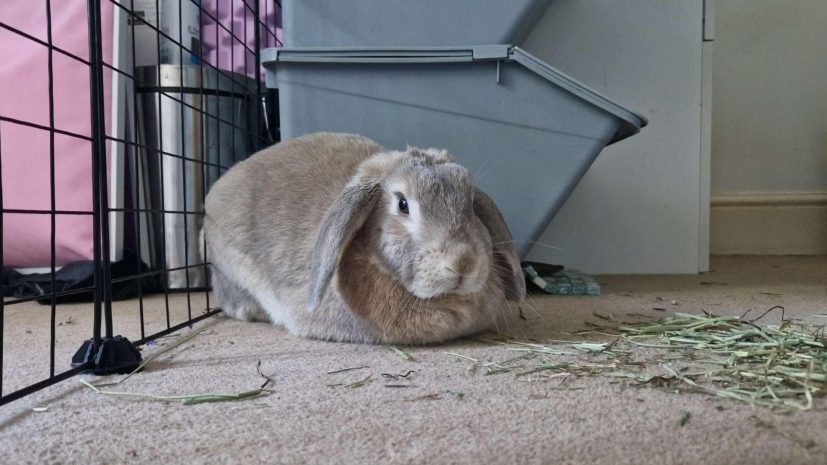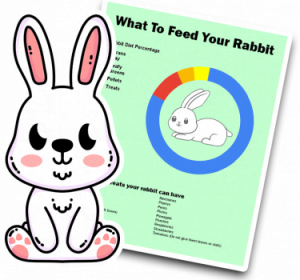
As prey animals, rabbits have sensitive respiratory systems and delicate skin, so choosing the right bedding for them is crucial for their health and well-being.
Pine bedding is a common choice due to its soft texture, absorbency, and pleasant scent. However, there is controversy around using pine bedding for rabbits. While some claim it is perfectly safe, others argue that pine bedding poses risks to rabbit health. This article will examine the debate around pine bedding to help rabbit owners make informed decisions.

Pine wood shavings have been a popular choice as bedding material for rabbits and other small pets for a long time. The soft, absorbent texture of pine makes it comfortable for rabbits to rest on, and many owners enjoy its fresh, pleasant fragrance. As an organic material, pine is biodegradable and sustainable, making it a popular choice among environmentally conscious rabbit owners.
Pine Wood contains phenols, a plant compound that can potentially harm in large quantities. Softwoods like pine have higher phenol content than hardwoods. When ingested by rabbits, phenols may cause changes in liver enzymes and kidney function. The dust from pine shavings can also irritate sensitive respiratory systems.
Reputable pine bedding brands use heat-treated or kiln-dried pine to reduce phenol content. This process significantly reduces the amount of phenols. As long as the pine bedding does not have a strong pine scent, it is likely safe for use. Pine that is not kiln-dried or contains sap is not recommended.
We sell lots of pine and cedar to be used as small animal bedding and have never had a report of anyone’s animal getting ill as a result!
Howard McMurrian, President GEM Shavings & Sawdust Co.
This statement suggests that many pet owners have used pine bedding without any adverse effects on their pets.
When choosing housing materials for rabbits, it’s important to consider their specific health and comfort needs. Rabbits are prone to respiratory problems, so bedding that produces a lot of fine dust particles is not ideal. Any wood shavings should be very finely sifted.
Rabbits also have sensitive skin that can be irritated by too rough materials. Pine shavings are soft enough when properly processed, but cheap varieties may splinter.
Incontinence is common in older or disabled rabbits, so absorbency is another key need in bedding. Pine is more absorbent than materials like straw or newspaper. Good drainage is also important to keep the bedding dry.
Finally, edibility concerns any material placed in a rabbit’s habitat. Rabbits tend to chew on materials in their environment. While processed pine is generally safe if ingested in small amounts, owners should closely monitor their rabbit’s behavior.

There are a few health risks commonly associated with pine bedding. The main concerns are respiratory issues and liver problems.
The phenols in pine wood can accumulate in the liver after being ingested by rabbits over time. This may cause changes in liver enzymes and potentially long-term liver damage. Pine dust can also irritate the respiratory tract. Rabbits are prone to respiratory infections that can become serious.
These effects occur mainly when rabbits are housed on pine bedding full-time over the years. Problems are more likely with poor quality pine that is roughly cut or contains sap and high phenol content. There is no evidence that occasional, temporary use of kiln-dried, dust-free pine shavings poses a health risk.
Overall, while pine does pose some risks, the incidence of health problems directly attributable to pine bedding appears low. There are few documented cases of pine bedding when used properly. Still, owners should be cautious and observant when using pine.
For owners who prefer to avoid pine entirely, there are several alternative beddings:
Each material has different benefits and drawbacks. Owners should experiment to find the right option for their rabbit’s needs.
Pine bedding is a controversial choice for rabbit owners. While its soft texture and absorbency make it comfortable for rabbits, pine naturally contains phenols that may impact liver health over time. Properly kiln-dried pine with low dust is generally considered safe for short-term use, but owners should closely monitor their rabbit’s health.
For those concerned about potential risks, alternative beddings like aspen, paper, or straw avoid pine’s downsides. Ultimately, rabbit owners should research thoroughly and consult their vet to select the ideal bedding for their pet’s needs. We prefer to avoid the risk entirely and don’t use pine bedding.

By entering your email address you agree to receive emails from Cottontailclub. We'll respect your privacy and you can unsubscribe at any time.